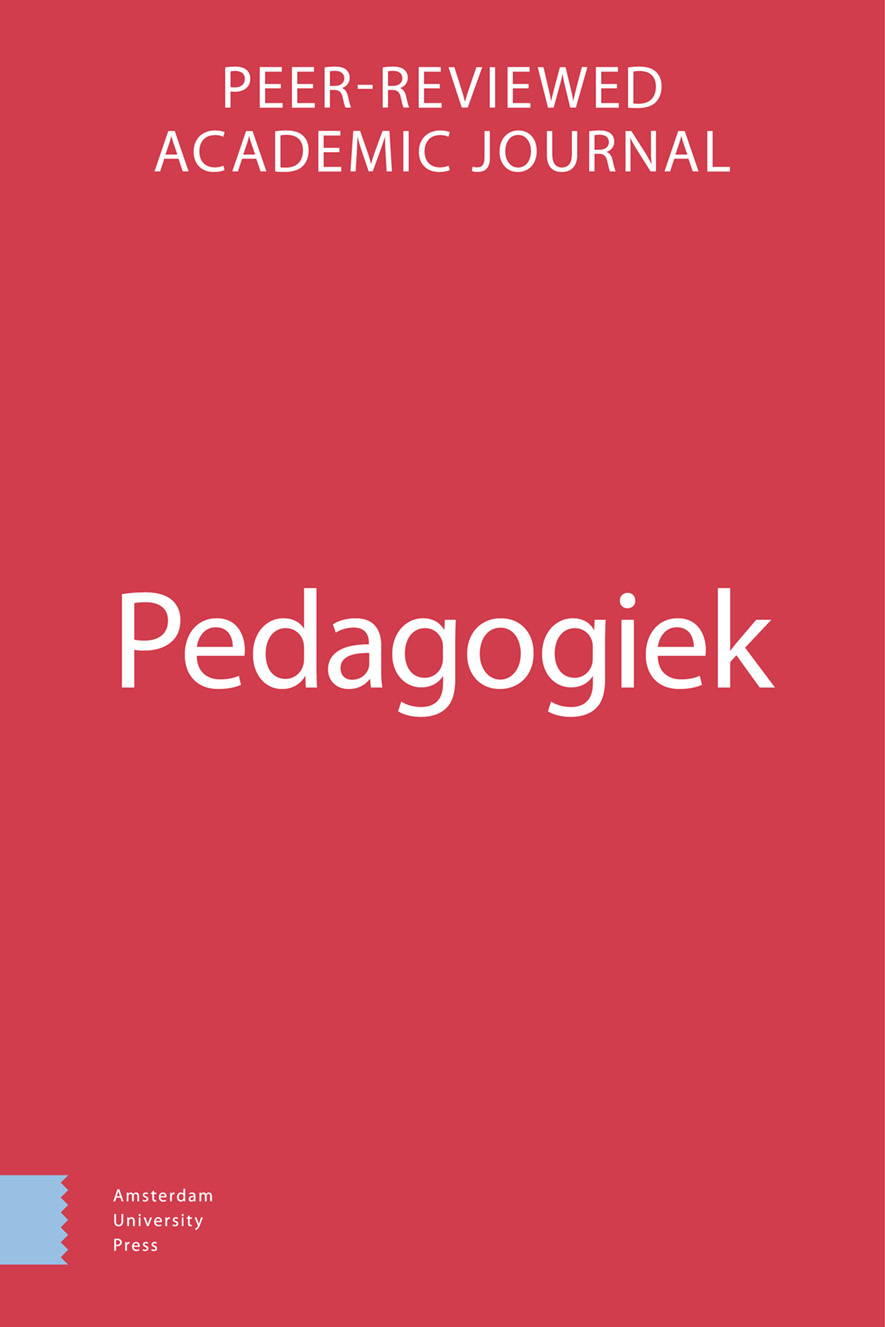-
oa Floreren als ultiem einddoel van opvoeding en onderwijs
Een kwetsbare onderneming
- Amsterdam University Press
- Source: Pedagogiek, Volume 39, Issue 1, May 2019, p. 95 - 112
-
- 01 May 2019
Abstract
Human flourishing as an overarching aim of education: a fragile endeavor
Human flourishing can be characterized as living a successful, happy and morally good life. Several philosophers of education have argued that flourishing should be seen as an overarching, ideal aim of education, and that this has or should have several implications for both schools and parents. In this article, which is a summary of my dissertation, I reflect on these theories. Is the fact that these theories tend to place a central emphasis on ideals problematic? And what does aiming for flourishing exactly imply for parents and parenting? I argue that in parenting for flourishing, we deal with a double uncertainty. Parental striving for flourishing is an uncertain endeavor, firstly, because flourishing, being in part dependent on ‘luck’, is inherently fragile; and secondly, because childrearing can be considered to be an ‘existential risk’ that makes parents vulnerable in yet another way. I conclude that in theories on education for flourishing, this double uncertainty has to be taken into account properly, by which I mean that it has to reflect the practices of parenting and the uncertainty of life in general in order to keep in touch with the non-ideal, real world.


